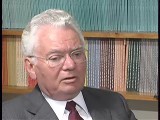You searched for: Concentration camps
<< Previous | Displaying results 1001-1050 of 1116 for "Concentration camps" | Next >>
-
Jozef Rapaport
ID CardJozef was raised in a religious Jewish family. When he was a baby, his father died and his mother was left to care for him and his three older sisters. The family was poor, but Jozef was determined to have a good education. He put himself through university in Prague, and then went on to earn a Ph.D. in economics in Vienna. In 1931 he married Leah Kohl, and the couple settled in Warsaw. 1933-39: The Rapaports lived in the suburbs, and Jozef worked as a banker. His daughter, Zofia, was born in 1933. Jozef…
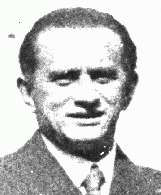
-
Andras Muhlrad
ID CardThe second of two children, Andras was born to Jewish parents living in a suburb of Budapest. His father was a pharmacist. The Muhlrads lived in a large house with Andras' grandfather and aunts. As a toddler, Andras often played with his older sister, Eva, and their cousins in the big yard behind their home. 1933-39: Andras was 4 when his family moved to their own apartment. It was 1936 when he began primary school and Hitler had already been in power in Nazi Germany for three years. At night his father…
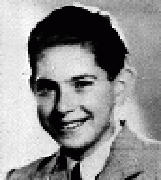
-
Wolfgang Lachman
ID CardWolfgang was the only son of observant Jewish parents living in Berlin. Though trained as a mechanical engineer, Wolfgang's father ran a wholesale kerchief and handkerchief business that he had taken over from his father-in-law. Wolfgang's family lived in an apartment above the business. They enjoyed vacationing at their country home in Neuenhagen, a suburb of Berlin. 1933-39: Wolfgang began school when he was 5; that year Hitler was named leader of Germany. Every morning they had to sing three songs: the…
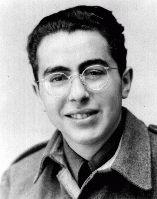
-
Johannes M. Lublink
ID CardJohannes was born to Christian parents and had three brothers and three sisters. His father sold coal for heating systems. By 1933, Johannes was also a coal distributor. Like many other Dutch citizens, Johannes did not approve of Hitler's policies. He especially objected to Hitler's persecution of Jews and Jehovah's Witnesses. 1933-39: Hitler's coming to power in Germany was a threat to all of them. In 1936, Johannes became a Jehovah's Witness. His mother was also a Witness and, by 1938, one brother and…
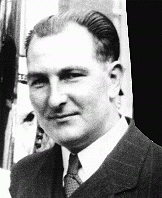
-
Ruth Freund Reiser
ID CardRuth was a child of middle-class Jewish parents living in Czechoslovakia's capital, Prague, where her father worked as a bank clerk. As native Czechs, her parents considered themselves as much Czech as Jewish. In 1933 Ruth was in her second year at a public girls' secondary school. 1933-39: The Germans occupied Prague in March 1939 and imposed many restrictions. Jews were no longer allowed to attend school, so Ruth's education stopped at age 13. Jews had to surrender many of their possessions such as…
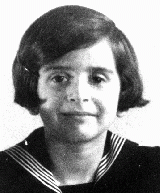
-
Joseph Muscha Mueller
ID CardJoseph was born in Bitterfeld, Germany, to Roma ("Gypsy") parents. For reasons unknown, he was raised in an orphanage for the first one-and-a-half years of his life. At the time of Joseph's birth, some 26,000 "Gypsies"—members of either the Sinti or Roma tribes—lived in Germany. Though most were German citizens, they were often discriminated against by other Germans and subjected to harassment. 1933-39: At age one-and-a-half, Joseph was taken into foster care by a family living in Halle, a city some…
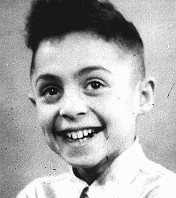
-
Rémy Dumoncel
ID CardRémy was born in a small French town to Catholic parents. In 1913, after studying law at the University of Paris, he joined the Tallandier publishing house in Paris. During World War I he served in the French army and was wounded five times. He returned to work at Tallandier after the war, and in 1919 he married Germaine Tallandier, the daughter of the owner. They had five children whom they raised as devout Catholics. 1933-39: In 1935 Rémy became the mayor of Avon, a small town about 35 miles southeast…
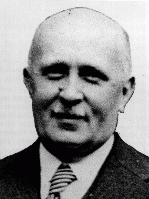
-
Smiljka Ljoljic Visnjevac
ID CardSmiljka was one of three daughters born to Serbian Orthodox parents in the town of Mostar in the central Yugoslav region of Herzegovina. Smiljka's mother died when Smiljka was 3, and the three girls were raised by their father. A tomboy in her youth, at 17 Smiljka won the Miss Makarska Riviera beauty pageant and left for Germany to become a fashion model. 1933-39: Smiljka had a successful modeling career in Berlin. With her tall, slim figure, high cheekbones, and almond-shaped, grey-blue eyes, she was…
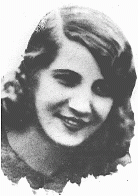
-
Feiga Malnik
ID CardRaised in a Jewish family, Feiga lived with her husband, Josef, in Kovno, a city with a large Jewish community of 38,000. Kovno was situated at the confluence of two rivers, and with its opera company, chic stores and lively nightclubs, it was often called "Little Paris." Feiga was a beautician and Josef was a barber, and together they ran a shop in downtown Kovno. 1933-39: Every day Josef and Feiga walk to their shop, which is near their house. It's hard work, being a beautician--Feiga is on her feet…
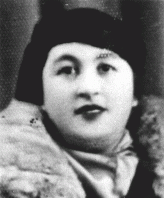
-
Ben Stern
ID CardBen was born to Jewish parents in Warsaw. When Ben was 7, his family moved to Mogielnica, about 40 miles from Warsaw. Ben's father spent much of his time studying religious texts. His wife managed the family liquor store. Ben attended public school during the day and was tutored in religious studies in the evening. 1933-39: After attending school in Warsaw, Ben returned home to help in the family's liquor store. One day, there was a mass demonstration in town. People chanted, "Don't buy from the Jews!"…
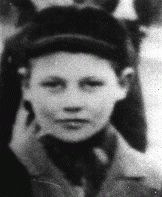
-
Hilda Kusserow
ID CardHilda was born in a territory ruled by Germany until 1919. A teacher and a painter, she married Franz Kusserow and moved to western Germany before World War I. There, she gave birth to 11 children and became a Jehovah's Witness. After 1931 the Kusserow home in the small town of Bad Lippspringe was the headquarters of a Jehovah's Witness congregation. 1933-39: The Nazis repeatedly searched Hilda's home because her family remained openly steadfast in their devotion to Jehovah. Hilda continued doing…
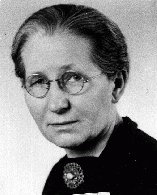
-
Karl Lange
ID CardKarl was born in the north German port of Hamburg. His father was American, and his mother was German. Soon after Karl was born, his father returned to the United States and a little later, his parents were divorced. Karl left school when he was 14 and worked as a shop apprentice. 1933-39: In 1935 an informer told the police about Karl's secret meetings with a 15-year-old youth, and he was arrested under the criminal code's paragraph 175, which defined homosexuality as an "unnatural" act. Though this law…
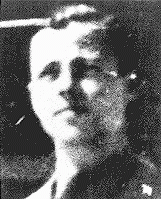
-
Karl Gorath
ID CardKarl was born in the small town of Bad Zwishenahn in northern Germany. When he was 2, his family moved to the port of Bremerhaven. His father was a sailor and his mother became a nurse in a local hospital. After his father died, Karl continued to live with his mother. Karl was 20 when he began training as a deacon at his parish church. 1933-39: Karl was 26 when his jealous lover denounced him and he was arrested at his house under paragraph 175 of the criminal code, which defined homosexuality as an…
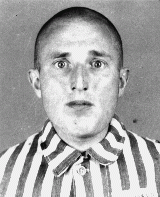
-
Kornelia Mahrer Deutsch
ID CardKornelia was known as Nelly. She was the older of two daughters raised by Jewish parents in the Hungarian capital of Budapest. Her father fought in the Hungarian army during World War I. Kornelia attended public school and later worked as a bookkeeper for a soap factory. In 1928 she married Miksa Deutsch, a businessman who sold matches. 1933-39: Kornelia's husband was religious and the Deutsches' three children attended Jewish schools. Miksa and his brother were the sole distributors in Hungary of…
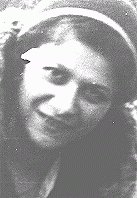
-
Berthold Mewes
ID CardBerthold was an only child. He was raised in Paderborn, a town in a largely Catholic region of western Germany. Paderborn was near Bad Lippspringe, where there was a Jehovah's Witnesses congregation engaged in missionary work. Beginning in 1933, the Nazis moved to outlaw Jehovah's Witness activities. 1933-39: When Berthold was 4, his parents became Jehovah's Witnesses and he began to attend secret Bible meetings with them. Berthold began public school in 1936. His mother was arrested in 1939 and sent to…
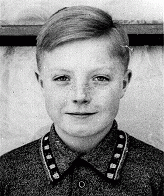
-
Magdalena Kusserow
ID CardOne of 11 children, Magdalena was raised as a Jehovah's Witness. When she was 7, her family moved to the small town of Bad Lippspringe. Her father was a retired postal official and her mother was a teacher. Their home was known as "The Golden Age" because it was the headquarters of the local Jehovah's Witness congregation. By age 8 Magdalena could recite many Bible verses by heart. 1933-39: The Kusserow's loyalty was to Jehovah, so the Nazis marked them as enemies. At 12 Magdalena joined her parents and…
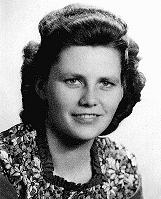
-
Ernst Reiter
ID CardErnst was an only child born to atheist parents in southern Austria during the middle of World War I. Raised in Austria's second largest city, he loved the outdoors, especially skiing in the Alps. In the early 1930s Ernst became a Jehovah's Witness. Although Austria was then in a deep economic depression, he was fortunate to find a job as a sales clerk in a grocery store. 1933-39: Austria's Catholic government was hostile towards Jehovah's Witnesses. When the Germans annexed Austria in March 1938, their…
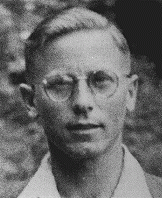
-
Zalie Waldhorn
ID CardZalie was the second of three children born to immigrant Jewish parents. Her Polish-born father was a former officer in the Austro-Hungarian army who had met and married her Hungarian-born mother during World War I. Shortly before Zalie was born, her parents settled in Paris. There, Zalie and her brother and sister grew up in a religious household. 1933-39: Zalie's mother said it was better in Paris than in the poor village in which she grew up. Her mother spoke broken French, but Zalie grew up speaking…
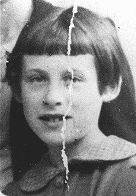
-
Judith Beker
ID CardJudith was one of three children born to a Yiddish-speaking Jewish family living on a farm near the Lithuanian town of Jonava. Judith's mother had an extensive Jewish education and taught her daughters at home. Her son, Abe, attended a Jewish religious school in Jonava. Judith's father worked in the logging industry. 1933-39: In the fall of 1938, six months after her father died, Judith and her mother moved to Kovno, the capital of Lithuania. She was 9 years old. Kovno at that time had a large Jewish…
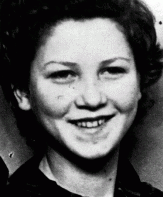
-
Fanny Judelowitz
ID CardFanny was the oldest of three girls born to a Jewish family in the Baltic seaport of Liepaja, a city with a large Jewish community in Latvia. Fanny attended a Jewish primary school there. Her parents owned and operated a shoe store and small shoe factory. 1933-39: As a young girl, Fanny's life revolved around activities with Betar, a Zionist youth movement founded in Riga in 1923. They had a group of about 25 boys and girls. They studied about Palestine and their Jewish heritage. In 1935 Fanny's mother…
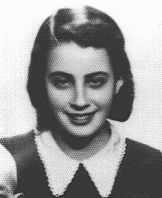
-
Betty Leiter Lauchheimer
ID CardBetty was one of 14 children born to a religious Jewish family in Aufhausen, a village in southwestern Germany. Her father was a successful cattle dealer in the area. On May 8, 1903, at age 20, Betty married Max Lauchheimer, a cattle merchant and kosher butcher. They lived in a large house by an orchard in the village of Jebenhausen. Betty and Max had two children, Regina and Karl. 1933-39: In late 1938 Betty and Max were visiting their daughter in Kippenheim when police arrested Max and their son-in-law.…
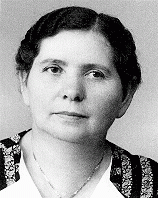
-
Lucien-Louis Bunel
ID CardLucien was the fourth of eight children born to poor Catholic parents in a small town in northwestern France. Lucien began his seminary studies in nearby Rouen at the age of 12. Following two years of military service, he resumed his religious studies in 1922 and was ordained as a priest three years later. He joined the Carmelite religious order in 1931, and became Father Jacques. 1933-39: In 1934 Father Jacques moved to the town of Avon, where he established a boys' school,…
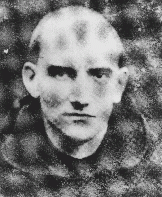
-
Simcha Perlmutter
ID CardSimcha was one of six children born to a Jewish family in the town of Horochow. His father was a Hebrew teacher. Simcha was an excellent student and after studying at universities in Switzerland, France, and Germany, he became a philosophy professor at the university in Lvov. In the early 1920s he married, and by 1929 he and his wife, Fruma, had two daughters, Tchiya and Shulamit. 1933-39: Simcha was a Zionist and throughout the 1930s he encouraged his Jewish students to emigrate to Palestine [Aliyah…
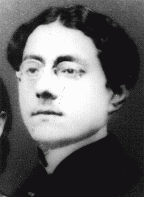
-
Nenad Dusan Popovic
ID CardNenad was the youngest of nine children born to Serbian Orthodox landowners in the eastern Croatian part of Yugoslavia. During World War I the Popovic family was evacuated to Vukovar by the Austro-Hungarian army, which was then at war with Serbia. In 1928 Nenad moved to Belgrade, where he attended Belgrade University, graduating with a law degree in 1932. 1933-39: Nenad's specialty was law related to economics and he found a job in the economic research department of the Yugoslav central bank in Belgrade.…
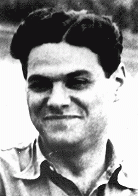
-
Lila Lam
ID CardLila was born to a Jewish family in the largely Jewish city of Stanislawow. The Lam family owned an oil field and refinery, and Lila's father, who was trained as a lawyer, helped to manage the business. When it came time for Lila to begin first grade, her parents decided to have her tutored privately at home rather than have her attend an elementary school. 1933-39: The Jewish holidays were always special times. Although Lila's family wasn't religious, the holidays were wonderful opportunities for her…
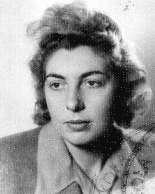
-
Jakab Katz
ID CardJakab, a religious Jew, was the father of eight children. In the early 1900s he sailed to America, paying his way by shoveling coal on the ship. In New York he earned enough money to help two of his daughters immigrate. Returning to Buj, he eventually moved his family to Zalkod, a small town in northeastern Hungary. There, helped by his wife, Terez, and his son, Miklos, he ran a store and a farm. 1933-39: Jakab's daughter, Sadie, and her two children, Lillian and Arthur, are visiting from America. The…
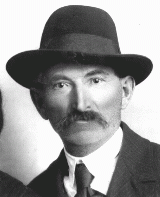
-
Alexandra Schicharva
ID CardAlexandra was the second-youngest of six children born to Russian Orthodox parents. Her family lived in a small village in the Orlovskaya region, some 250 miles south of Moscow [in the Soviet Union]. She attended public school, where she learned German. Alexandra's father was a plasterer and painter, and often worked away from home for months. Her mother worked at a collective farm in the village. 1933-39: In 1933 food was scarce. The government seized grain harvests for export; other crops were taken to…
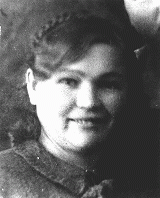
-
Bruno Klein
ID CardBruno was the youngest of six children born to Jewish parents in the city of Osijek in eastern Croatia when it was still part of the Austro-Hungarian Empire. He attended elementary school in Osijek and then completed his secondary schooling in Poega, a Croatian town where his parents had moved in 1923. In 1932 the Klein family moved to Zagreb, the capital of Croatia. 1933-39: While living with his parents in Zagreb, Bruno attended medical school until 1938, when he graduated. He specialized in internal…
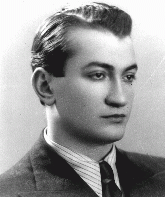
-
David Klebanov
ID CardBorn in the town of Volkovysk when it was part of Russia, David was the son of middle-class Jewish parents. When the family's life was disrupted by World War I and the Russian Revolution of 1917, they moved to Borisov and Kiev before finally settling in the Polish city of Bialystok. After completing secondary school in 1925, David studied medicine at Stefan Bathory University in Vilna. 1933-39: After medical school David served one year in the Polish army. Then he practiced obstetrics at a beautiful…
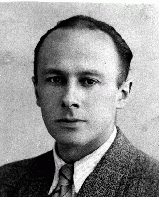
-
Onti Lazar
ID CardOnti, the youngest of five sons, was born to religious Jewish parents in northern Transylvania, a region of Romania that had belonged to Hungary until 1918. Onti's family usually called him Usher, which was the diminutive of his Yiddish name, Anschel. As a little boy, he liked collecting figurines. Though Onti grew up in a Hungarian-speaking home, he attended Romanian public schools. 1933-39: At age 13 Onti quit school to help make ends meet. He wanted to become a watchmaker, but he settled on working as…
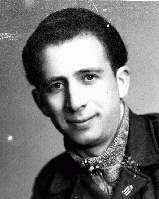
-
Frieda Greinegger
ID CardFrieda was the fourth of five children born to strict Catholic parents. She had one brother and three sisters. Frieda grew up on a large farm near the village of Michaelnbach in northern Austria. The farm had cattle, horses, pigs and poultry, and the children worked long hours helping their parents on the farm. At age 12, Frieda left school to work full time on the farm. 1933-39: Germany annexed Austria in March 1938. When war broke out in September 1939, Frieda's brother was drafted into the German army.…
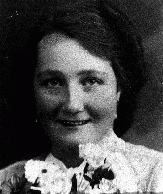
-
Ezra BenGershom
ID CardEzra was born to a Jewish family in the Bavarian city of Wurzburg. In the summer of 1929, his father, a third-generation rabbi, accepted a position as a district rabbi, guiding 12 congregations in Upper Silesia. In primary school, Ezra, who showed a keen interest in chemistry, was often harassed by his schoolmates for being Jewish. 1933-39: Because of his "Nordic" features, Ezra was able to frequent places where Jews couldn't go. In 1938, one year after he entered a Jewish secondary school in Berlin, the…
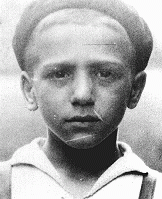
-
Josef Malnik
ID CardRaised in a Jewish family, Josef lived with his wife, Feiga, in Kovno, a cosmopolitan city that was picturesquely situated at the juncture of two rivers and was known as the "Little Paris." Josef was a barber, his wife was a beautician, and together they ran a shop in downtown Kovno. 1933-39: Every day Josef and Feiga walk to their shop which is not far from their house. It's hard work being a barber--Josef is on his feet most of the day, seven days a week including a couple of hours on Sunday. He has…
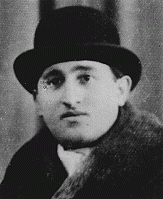
-
Edek Blonder
ID CardThe Blonder family lived in a two-room apartment in the back of a store. Edek was the third of eight children. His father eked out a meager living by tutoring students in Jewish subjects, and beginning in 1930 he worked distributing food vouchers to the poor. 1933-39: After graduating from secondary school, Edek was invited to play soccer professionally on the local Club Maccabi team, which was part of a Jewish soccer league. Club Maccabi arranged for him to attend trade school to learn cabinet making at…
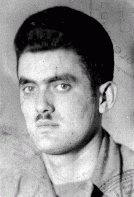
-
Jules Izrael Zajdenweber
ID CardJules grew up in a Jewish family in the industrial city of Radom, which had a large Jewish population and was known for its armaments industry. The Zajdenwebers spoke Polish and Yiddish at home. Jules' father was a textile salesman and his mother was a corset maker. Jules, whose nickname was Ulek, attended public schools in Radom and was a member of a Zionist youth organization. 1933-39: Jews weren't safe in certain neighborhoods. Some classmates at Jules's Polish state secondary school belonged to…
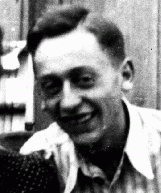
-
Charles (Karel) Bruml
ID CardCharles was born to a Jewish family in Prague, the capital of Czechoslovakia. His father owned several shoe factories there. Prague's Jewish minority enjoyed a great deal of cultural freedom because of the new democratic Republic. Though antisemitism still existed in Czechoslovakia, Prague was a relatively tolerant city. 1933-39: Charles' father's business thrived in Prague, and they lived well. Charles enjoyed painting as a child and decided to study at an art school in the city. On the morning of March…
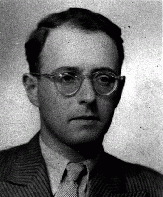
-
Frederick Fleszar
ID CardFrederick was the oldest of two sons born to Polish immigrants in Syracuse, New York. In 1922 Frederick's father, who was a musician, moved the family back to Poland where they settled in Poznan. There Frederick started public school and was accepted to the boys section of the prestigious Poznan Cathedral Choir. 1933-39: In 1933, at age 17, Frederick graduated from secondary school and enrolled in medical school at the university at Poznan. He sang with the choir for the last time the day he graduated…
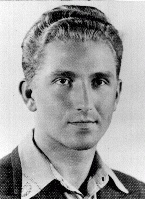
-
Settchen Oppenheimer
ID CardSettchen was one of three children born to a religious Jewish family in a small town in the German state of Hessen. Her father was a cantor and kosher butcher. Settchen completed grade school during the 1880s. Because of a digestive disease, Settchen was largely homebound. She never married, and lived with her younger sister and brother-in-law. 1933-39: Reichenbach was a quiet town. Its largely Protestant inhabitants were generally not antisemitic. After Hitler came to power in 1933, the Nazis staged…
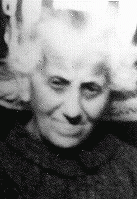
-
Jeno Brieger
ID CardJeno was born into a large, religious Jewish family in the village of Nagyhalasz in northeastern Hungary. The Briegers spoke Yiddish and Hungarian. After Jeno's mother died, his father remarried and the family moved to the town of Nyiregyhaza where his father owned and operated a hardware store. Nyiregyhaza had a Jewish population of 5,000. 1933-39: Jeno was the oldest son in a household of seven children. Nyiregyhaza was a rural town in which people still used horses and buggies. Jeno attended a…
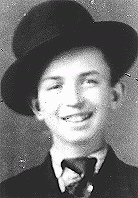
-
Hildegard (Hilda) Krakauerova Nitschkeova
ID CardHilda was the youngest of six children born to Jewish parents in a small Moravian town, where her father ran a dry-goods and clothing store. Her family spoke both Czech and German at home. Hilda was a tomboy when she was growing up, and competed on the Maccabi swim team. She attended a public secondary school in Hodinin, and wanted to pursue a career as a dental technician. 1933-39: In February 1933 Hilda moved to the Moravian capital of Brno where she attended dental school. On December 23, 1935, she…
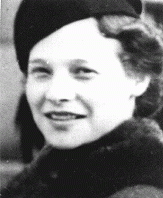
-
Miksa Deutsch
ID CardMiksa was the youngest of four children born to religious Jewish parents. The Deutches lived in the town of Bistrita in Transylvania, a region of Romania that belonged to Hungary until 1918. After 1910, the family lived in nearby Viseu de Sus. In 1922 Miksa moved to Budapest, Hungary, where he and his older brother, Pal, opened a business selling matches. In 1928 Miksa married Kornelia Mahrer. 1933-39: Miksa and Kornelia had three children, whom they raised with a religious education. Miksa and his…
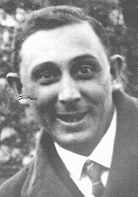
-
Jocheved Kuzda Kasher
ID CardJocheved, or Jadza as she was called at home, was born in the industrial city of Lodz, Poland's second-largest city. Before the war, one-third of Lodz's inhabitants were Jewish. The Kuzdas kept a traditional Jewish home and placed importance on their children's education. Jocheved had two older sisters, Sarah and Regina. 1933-39: Jocheved was 9 when the war broke out in September 1939. Instead of starting school, she stayed at home listening to the bombs exploding. Her father and sister tried to get to…
-
The "We Will Never Die" Pageant
Article"We Will Never Die" was a 1943 musical stage performance that raised awareness among Americans about the murder of European Jews. Learn more.
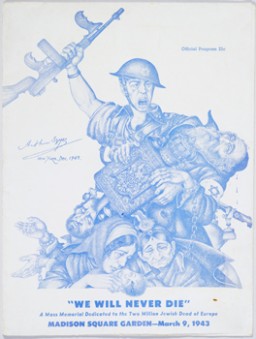
-
Opening of 1936 Summer Olympic Games
FilmIn 1933, Nazi Party leader Adolf Hitler became chancellor of Germany and quickly turned the nation's fragile democracy into a one-party dictatorship. Police rounded up thousands of political opponents, detaining them without trial in concentration camps. The Nazi regime also put into practice racial policies that aimed to "purify" and strengthen the Germanic "Aryan" population. A relentless campaign began to exclude Germany's one-half million Jews from all aspects of German life. For two weeks in August…
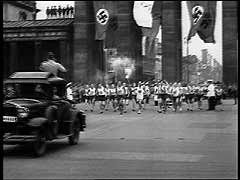
-
Fritzie Weiss Fritzshall describes deportation in cattle car to Auschwitz
Oral HistoryFritzie's father immigrated to the United States, but by the time he could bring his family over, war had begun and Fritzie's mother feared attacks on transatlantic shipping. Fritzie, her mother, and two brothers were eventually sent to Auschwitz. Her mother and brothers died. Fritzie survived by pretending to be older than her age and thus a stronger worker. On a death march from Auschwitz, Fritzie ran into a forest, where she was later liberated.
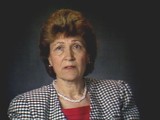
-
Isaac (Mike) Danon describes conditions in Yugoslavia and Italian occupation forces there
Oral HistoryIsaac lived with his parents and three sisters in Split, on the Dalmatian coast of Yugoslavia. When German and Axis forces invaded and partitioned Yugoslavia in 1941, Italian forces occupied Split along with other coastal areas of Yugoslavia. Italian occupation authorities in Yugoslavia generally prevented violent attacks on Jews. The Italian zone became a safe haven for those fleeing the Nazis or the Ustase (Croatian fascists). After Italy signed an armistice with the Allies in 1943, the area was occupied…
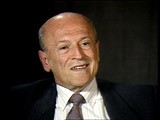
-
Rifka Muscovitz Glatz describes emotions surrounding the establishment of the state of Israel
Oral HistoryRifka was raised in a religious family in Debrecen. In the early 1940s, her family moved to Cluj (Kolozsvar) in Northern Transylvania, annexed to Hungary from Romania in 1940. In 1944, she and her family were forced to leave their house in Cluj. They were rounded up by Hungarian troops helping the Nazis and taken to a brick factory where they stayed for a month. In June 1944, Rifka was transported to the Bergen-Belsen concentration camp. Eight months later she was transported to Switzerland. She sailed to…
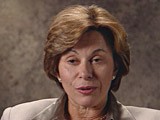
-
Francis Akos describes experiences in the immediate aftermath of the Holocaust
Oral HistoryAfter the Germans occupied Hungary in March 1944, Francis was deported to Neuengamme, a concentration camp located on the outskirts of Hamburg, Germany. Later, as Allied forces advanced, Francis and other prisoners were transported from Neuengamme. They were placed on a cargo ship which sailed into Luebeck Bay, where the prisoners were crowded onto the "Cap Arcona." The "Cap Arcona" and other ships were bombed in early May 1945. Francis was rescued and came ashore in the German town of Neustadt, where…
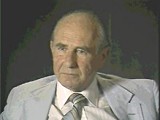
-
Thomas Buergenthal describes the impact of the Nuremberg trials on the development of international law
Oral HistoryJudge Thomas Buergenthal was one of the youngest survivors of the Auschwitz and Sachsenhausen concentration camps. He immigrated to the United States at the age of 17. Judge Buergenthal devoted his life to international and human rights law. He served as chairman of the United States Holocaust Memorial Museum’s Committee on Conscience; was named the Lobingier Professor of Comparative Law and Jurisprudence at the George Washington University Law School; and served for a decade as the American judge at…
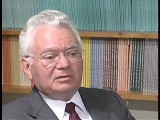
-
Thomas Buergenthal reflects on the value of truth commissions
Oral HistoryJudge Thomas Buergenthal was one of the youngest survivors of the Auschwitz and Sachsenhausen concentration camps. He immigrated to the United States at the age of 17. Judge Buergenthal devoted his life to international and human rights law. He served as chairman of the United States Holocaust Memorial Museum’s Committee on Conscience; was named the Lobingier Professor of Comparative Law and Jurisprudence at the George Washington University Law School; and served for a decade as the American judge at…
